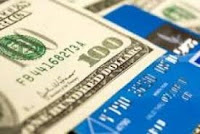Home Buyer Tip: Get Pre-Approved for Your Home Loan

There is a big difference between a buyer being pre-qualified and a buyer who has a pre-approved mortgage. Anybody can get pre-qualified for a loan. Getting pre-approved means a lender has looked at all of your financial information and they’ve let you know how much you can afford and how much they will lend you. Being pre-approved will save you a lot of time and energy so you are not running around looking at houses you can't afford. It also gives you the opportunity to shop around for the best deal and the best interest rates. Be sure to do your research: Learn about junk fees, processing fees or points and make sure there aren’t any hidden costs in the loan.


